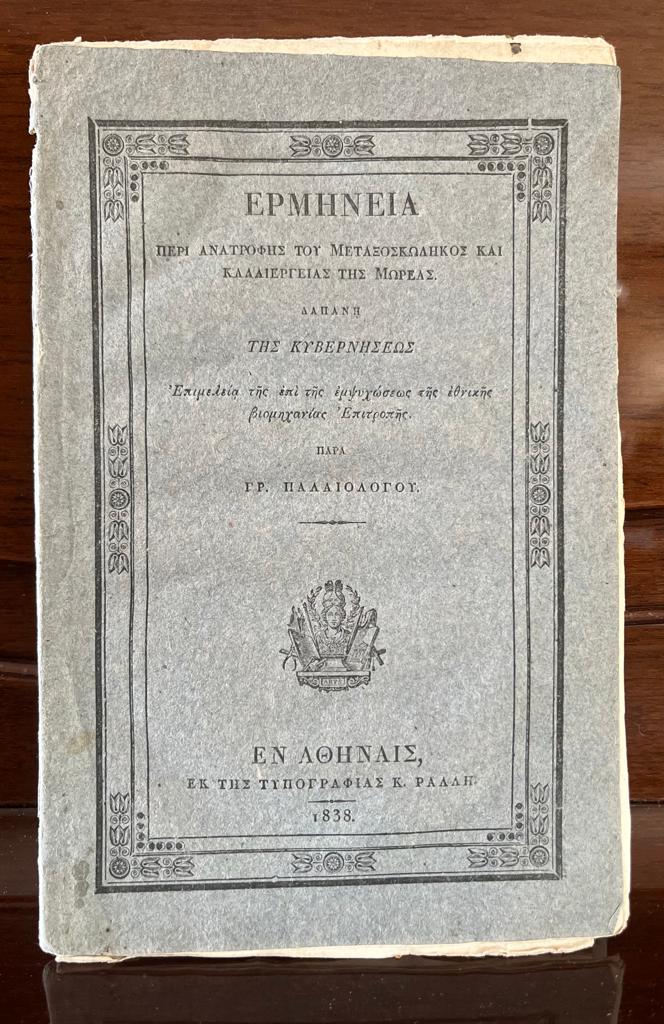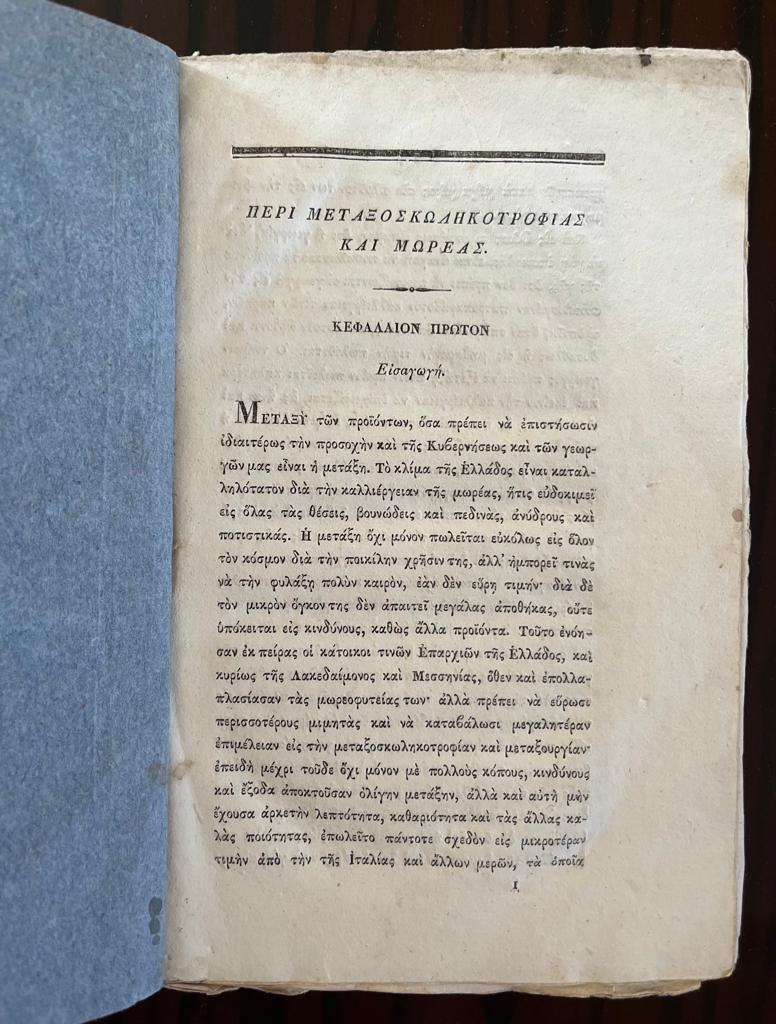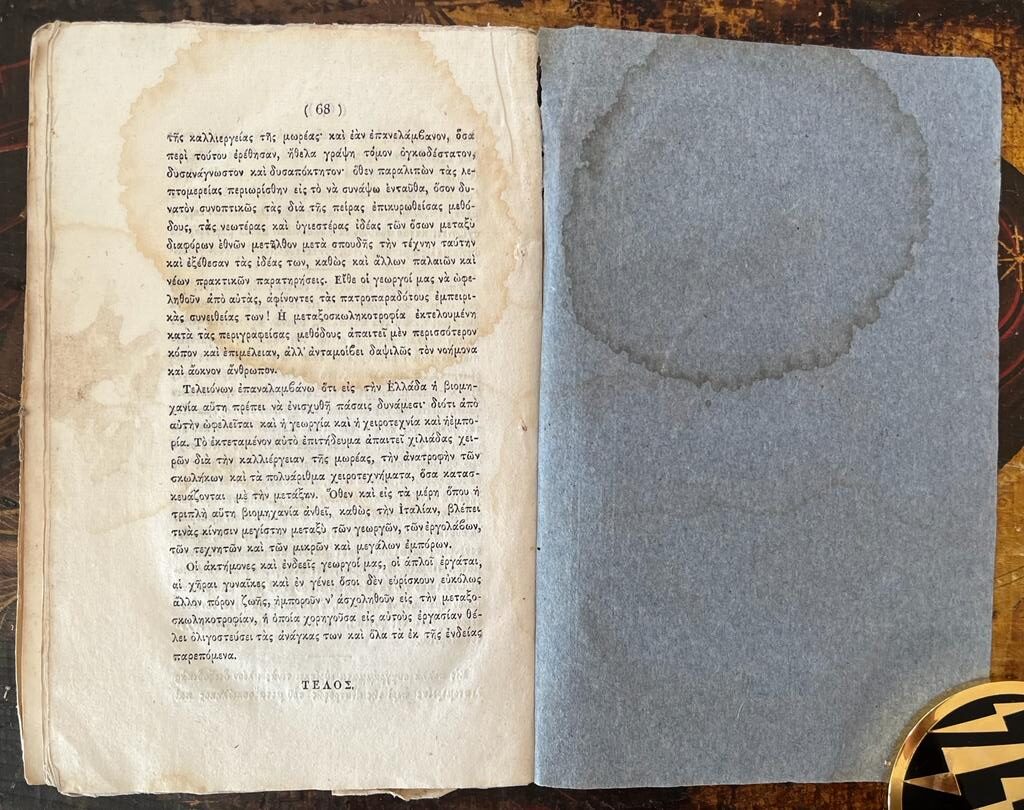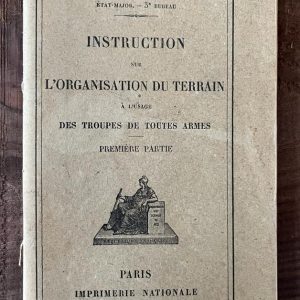Rare! 1838, Grigorios Palaiologos, Ermimia peri Anatrofis Metaxoskolikos kai Kalliergias tis Moreas, First Edition
300.00€
Only Copy for Sale Online
Out of stock
Description
Ερμηνεία περί ανατροφής του μεταξοσκώληκος και καλλιέργειας της μωρέας
δαπάνη της κυβερνήσεως
Επιμελεία της επί της εμψυχώσεως της εθνικής βιομηχανίας Επιτροπής
παρά Γρ. Παλαιολόγου
Explanation on Rearing Silkworms and Cultivating Mulberry Trees
by Gr. Palaiologos
Committee on the Animation of the National Industry Commission
Published by E. Ralli in Athens in 1838
Original Paper Binding
Pages 68
First Edition
21cm x 13,5cm
Sericulture, or silk farming, is the cultivation of silkworms to produce silk. Although there are several commercial species of silkworms, the caterpillar of the domestic silk moth is the most widely used and intensively studied silkworm.
Sericulture in Greece: At the dawn of the 19th century silk making was one of the most well known activities in the Greek area. Cultivation of the mulberry tree, cocoon farming and the first, rudimentary eco-technical processing (raw silk or simple forms of silk thread) were complementary activities of the rural household, with trade purpose. In this form the silk industry was confronted with the challenges of industrialization. It was also reorganized with new techniques that made their appearance reinforcing the process of the transformation of the Greek economy. This innovation attempted the transition from the domestic-traditional to the factory system production.
Additional information
| Languages | Greek |
|---|
You may also like…
-

Konstantinos Theotokis, I Timi kai to Chrima, Corfu 1914, Illustrations Markos Zavitzianos, 1/510 Copies
400.00€ Add to cart -

Vienna, 1817, Ermilos i Dimocrithiraclitos, Michail Perdikaris, First Edition
500.00€ Add to cart -

Nafplio 1834, Gerichts- und Notariats-Ordnung, King Otto of Greece, First Edition
280.00€ Read more -

Greek Book, Printed in Bucharest, 1834, Loukianou Dialogoi, Lucian of Samosata, Konstantinos Vardalachos
325.00€ Read more








